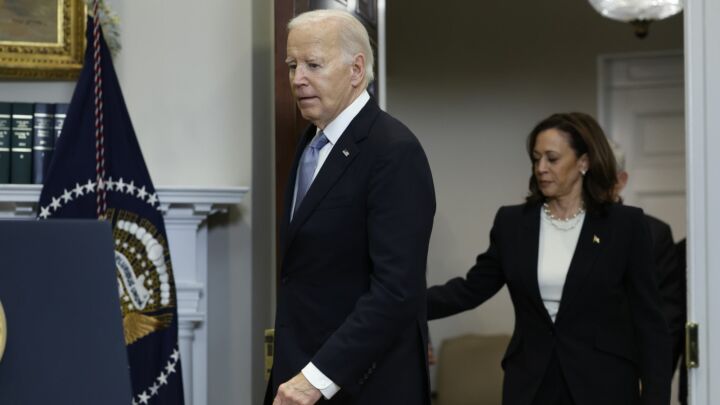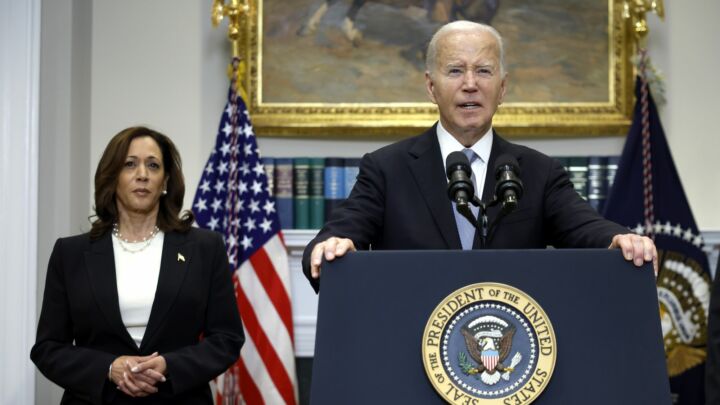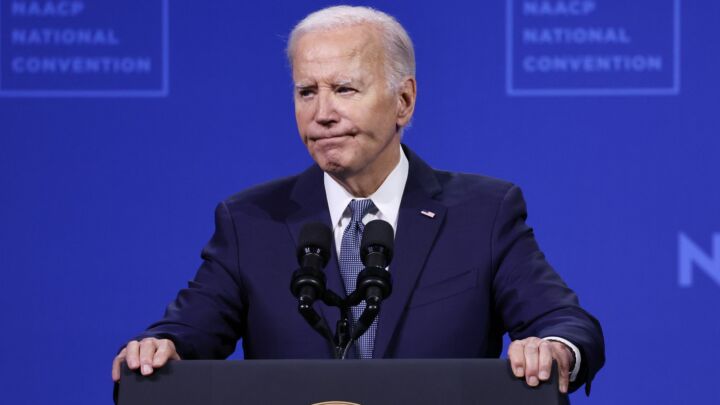The entitlement and intolerance of the campus Gaza camps
Anti-Israel bigotry is spreading like wildfire across UK universities.

Want to read spiked ad-free? Become a spiked supporter.
From the first moment students in the US pitched tents on campus and spouted their hostility towards Israel, it was inevitable that their counterparts in the UK would follow suit. As expected, from Aberdeen to Bristol, from Oxford to Cambridge, British students have set up their own ‘Gaza solidarity’ camps and are donning the uniform of the anti-Israel protester – the keffiyeh and Covid mask combo.
British students are also copying their American peers in play-acting victimhood, while displaying their huge sense of entitlement. Students in Newcastle have discovered that nights can be cold at this time of year. Members of campaign group Apartheid Off Campus Newcastle reportedly asked for donations of hot-water bottles, blankets and ground sheets after their first night under the stars.
Five students at Edinburgh University have upped the ante by embarking on a hunger strike. One striking student said this was the only way to get attention after having ‘taken every means of action we could’ to get the university to stop investing in companies that the protesters claim are linked to the Israeli military. In response, Edinburgh University has pointed out that it does ‘not hold any investments in Israeli arms’. But why let facts get in the way of a good hunger strike?
Another Edinburgh protester said the university had played ‘a very particular special role’ in events in the Middle East, as former university chancellor Arthur Balfour signed the Balfour Declaration, which was key to the formation of the state of Israel. This is at least honest in making clear that it is the very existence of Israel the protesters object to.
As in the US, academics and commentators have leapt to the defence of the protesters. UCU, the union for academics, issued a statement offering ‘solidarity to the many thousands of university students and staff across the world who are taking a stand against their institutions’ complicity in Israel’s genocidal war in Gaza’. Others argue that the student camps are peaceful and an expression of free speech. But to characterise them in this way is a stretch, even if the UK has not experienced the violence that has accompanied the American protest camps.
Earlier this week, protesters at Cambridge University shouted down a talk by Peter Thiel and delivered a speech of their own, accusing the tech billionaire of genocide because the company he founded, Palantir, has defence contracts with Israel. The group responsible for the disruption put out a statement accusing him of ‘profiting millions off the back of dead people’. Silencing others is an odd way to signal support for free speech.
Meanwhile, students camping out at Oxford are calling for the university to ‘sever its institutional relationships that facilitate the genocide and occupation of the Palestinian peope’, and to prevent ‘Israeli genocide, apartheid and occupation’ by overhauling its investment policies and stopping banking with Barclays. While marching to deliver their demands to the vice-chancellor, students chanted: ‘Oxford Uni, what do you say? How many kids have you killed today?’, ‘One, two, three, four, occupation no more. Five, six, seven, eight, Israel is a terrorist state’, and, ‘From the river to the sea Palestine will be free’. Of course, calling for the effective erasure of Israel is hardly a peaceful demand. Plus, the Union of Jewish Students is clear that these camps have created a ‘hostile and toxic’ atmosphere on campus for Jewish students across the UK.
Thankfully, some students are bravely challenging the protesters. One third-year Cambridge student held an Israeli flag aloft just across the road from those blocking Peter Thiel’s talk.
But what about those in charge of our universities? When students behave like toddlers, refusing food, demanding hot-water bottles and yelling ‘genocide’, where are the adults? Far from condemning the actions of the students, over 300 members of staff at Oxford University have signed an open letter in support of the protesters. It describes their camp in grandiose terms as ‘a public-facing global education project’. One signatory is Vernal Scott, Oxford’s head of equality and diversity. Last month, Scott made headlines after he publicly praised the Belgian authorities for trying to close down the National Conservatism Conference in Brussels. This support for free speech sounds hollow when it comes from those only interested in hearing views they endorse.
When a high-profile senior manager and hundreds of academics take a public stance on an issue, their view risks becoming, by default, the institutional position. It is only a small step away from saying ‘The university thinks…’. When it is clear what ‘the university thinks’, then academic freedom is rendered meaningless. Anyone who thinks differently knows they are putting their neck on the line if they challenge the consensus. At universities, where the Transgender Pride flag is flown from buildings, toilets are gender-neutral and staff training is provided by activist groups such as Gendered Intelligence, gender-critical feminists know they may technically have academic freedom, but also that expressing gender-critical views will come at a high price.
Earlier today, university leaders went to Downing Street to meet with the UK prime minister to discuss how to balance supporting free speech while preventing harassment of Jewish students. Good. But the fact that this meeting was even necessary shows that many university managers need reminding not just that academic freedom is important, but also what it actually entails.
Academic freedom demands tolerance. It calls on us to allow viewpoints we disagree with to be heard and to use our intellectual muscles to challenge ideas we find offensive. However, academic freedom does not give protesters the right to shout down or silence other people, physically bar people from buildings or intimidate students into staying away from campus. Defending academic freedom means stopping students from engaging in these activities.
Academic freedom also means students and scholars have the right to question every intellectual, moral and political orthodoxy. For this reason, adopting an institutional position on an issue is not an expression of academic freedom, but rather a means of restricting it.
In a university that truly values academic freedom, students should have the right to protest. But this is a limited right. It stops when other people’s freedom of speech, freedom of movement and right to disengage from politics and pursue scholarship are curtailed. It is good that Rishi Sunak is meeting vice-chancellors. But there is much further to go if we are to truly defend academic freedom.
Joanna Williams is a spiked columnist and author of How Woke Won. She is a visiting fellow at MCC Budapest.
Picture by: Getty.
To enquire about republishing spiked’s content, a right to reply or to request a correction, please contact the managing editor, Viv Regan.









Comments
Want to join the conversation?
Only spiked supporters and patrons, who donate regularly to us, can comment on our articles.